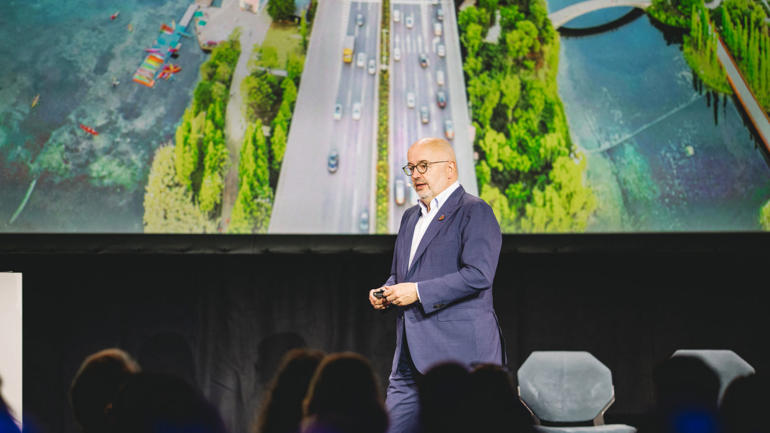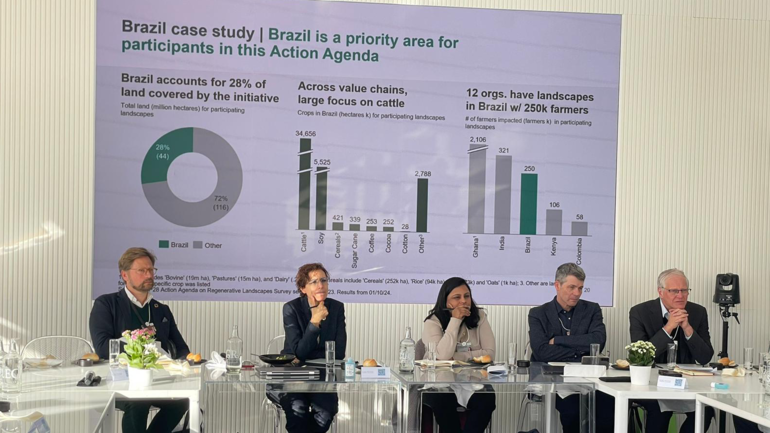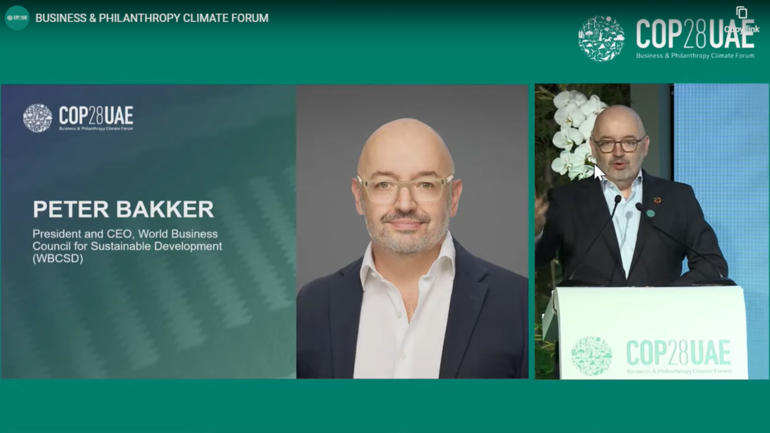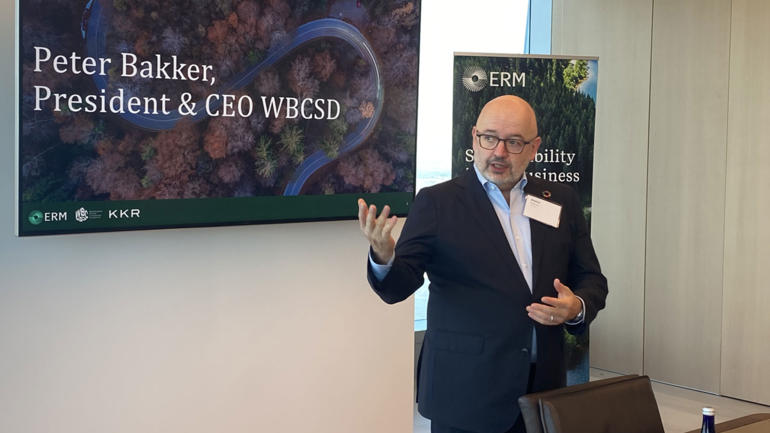COP26 has been like none other; it will be seen as an inflection point for global climate recovery, in which 1.5°C was agreed as the ceiling.
The final Glasgow Climate Pact is a glass half full, half empty case. I prefer to take the optimistic view, as the progress that has been made in key areas – such as the phase-out of inefficient fossil fuel subsidies, the phase-down of coal, and the requirement for countries to update their Nationally Determined Contributions ahead of COP27 in Egypt – is much welcomed.
We saw that alongside the core negotiations, public-private cooperation has delivered great progress. As the premier global, CEO-led community of the world’s leading sustainable businesses, we were proud witnesses of the leadership the private sector has brought to climate action in Glasgow. Business was present in bigger numbers than ever before, to engage in the conversations on how to decarbonize and bring commitments in a host of new ways.
WBCSD’s Business Manifesto for Climate Recovery is one of the reports we launched at COP26 (alongside other WBCSD reports that can be found here). The Manifesto is the first time that the world’s most sustainable, ambitious businesses have used their collective voice to outline what is required to accelerate global climate recovery. It sets out 12 action priorities framed around reducing, removing, and reporting emissions and highlights the public-private collaboration required to drive climate action. There is currently no mechanism to measure the private sector’s contribution to climate recovery, so, as part of the Manifesto, we have called for a new Corporate Determined Contributions (CDCs) mechanism to measure the private sector’s contribution to global climate recovery. I firmly believe that CDCs could be a true gamechanger and can only reiterate our call for the introduction of these at COP27.
We also saw Finance being ready for action, now. Mark Carney announced the Glasgow Financial Alliance for Net Zero (GFANZ): 100+ trillion dollars ready to take climate action into accounting capital allocations. And there was the historical launch of the International Sustainability Standards Board (ISSB), a long-desired global standard-setter for capital market sustainability (ESG) disclosure that will truly set the world up for consolidation and standardization of materiality-based reporting on greenhouse gas emissions. This will be the language to integrate what corporates do and what the financial world will value.
And we saw Nature being more central on the agenda than ever before, with a full COP day dedicated to Nature, illustrating how interconnected the challenges and solutions between Climate and Nature are.
It is needless to say, though, that more must be done if we are to achieve a net zero, nature positive and equitable future for 9+ billion people to live, within planetary boundaries, by 2050.
Unfortunately, we saw COP26 emphasizing the severity of a major disconnect; not per se within the conference itself, as it used to be the case, between governments and businesses, but between the conference participants and the 100,000+ protesters on the streets in Glasgow and globally...
Let it be clear that if we are to hold temperature rises to 1.5°C, we need to make the annual COPs inclusive for all. We need to make all part of the same journey. We need to build bridges. And we need to help the people on the street see what business is actually trying to do and accomplish. Only together can we accelerate climate action successfully.
However, with the launch of WBCSD’s new strategy last month – unique for tackling the three most pressing global sustainability challenges our world faces (the climate emergency, the loss of nature and mounting inequality) in an interconnected way – and WBCSD’s membership criteria, I am confident that business can create maximum impact for the climate, nature and people by unleashing the power of sustainable business and by setting the course for systemic transformation through business action. Business (and Finance) are ready for scaled action now. COP26 clearly underlined that we are in a time of change as well as great possibility, which requires accelerated business leadership and action, and it will be the (big) companies and capital markets that need to be and will be the drivers for the acceleration.








